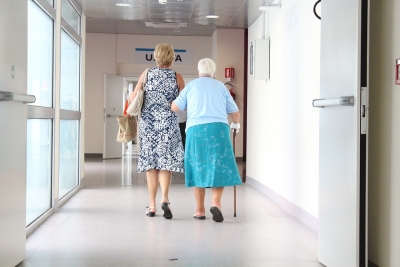Writing in this weekend’s Sunday Times, former No. 10 policy advisor and health expert, Camilla Cavendish, noted how she recently “discovered” – when arranging care for her own father – “I would have needed to pay for two helpers on 12-hour shifts if I was to look after him at home.”
I sympathise with Lady Cavendish’s experience, and how the seemingly arbitrary distinction between ‘health’ and ‘care’ services – whereby, for example, cancer treatments are funded by the NHS, but dementia care falls on the individual for all but the poorest in society – can often prevent the best course of action being taken, as separate budgets and responsibilities lead patients to be ‘pushed’ between services. As I too have found, it is one thing being well versed in how the health and social care system operates ‘on-paper’; quite another to discover the harsh reality when approaching it as a family member.
Despite five years representing and advising some of the country’s leading care providers, as a family member I still find the social care system to be a mind-boggling combination of well-meaning care staff, officious bureaucrats, not-fit-for-purpose rules, and that integration between health and care services is nothing more than a dream.
But this integration dream must become a reality. It has been known for years that the social care system is in crisis. In turn this crisis has placed unprecedented strain on an already faltering health system. Managed and funded separately, the fates of both are in deeply entwined.
To solve the systemic challenges in the system, a House of Lords report last week called for all health and care spending be merged under the responsibility of a new ‘Department for Health & Care’. The Lords also warned there was, “a shocking lack of long-term strategic planning in the NHS” and that, “the health service and social care system seem to be absorbed by the day-to-day struggles.”
Such a merger could provide the upfront funding needed to start and truly deliver an integrated health and care system across the country. The Better Care Fund, designed to kickstart such integration, has struggled precisely for the reason the Lords warned – officials are stuck dealing with the crises of today, directing money to where it is needed now, rather than investing in new systems of care that will, in the long run, lead to financial savings and better health outcomes.
Where leadership is strong, integration has proved effective. In Lancashire, support workers co-ordinating the care of over-60’s with chronic illnesses has led to a 13% reduction in A&E admissions. A partnership between Bolton Council, the NHS and Age UK, has cut hospital readmissions for the elderly by half.
These are shining examples of effective social care services working in tandem with the NHS to relieve pressure, improve health outcomes, and ultimately save money. They should be mirrored across the country. Yet, despite years of well-intentioned aspirations, the integration agenda remains patchy at best and non-existent at worst.
My Grandmother is a painful example of the human cost of a failure of health and care services to effectively work together. Suffering from severe Alzheimer’s, she is reliant on domiciliary care. Stuck inside alone, her physical health has deteriorated significantly, and despite repeated requests from health professionals, her GP refused to visit for two months. During this time, her legs became so ulcerated she is now unable to climb her stairs, confining her to just two downstairs rooms. Once a GP finally visited, it took three weeks for the prescribed medication to arrive, yet no instructions were provided to the domiciliary care staff tasked with administering it. A District Nurse was called, but they too required multiple requests and took weeks to arrive, presumably due to a lack of capacity.
As the government works on a Green Paper aimed at addressing the long-term funding needs of the care system – the fourth such review in the last 20 years – the human cost of inaction is mounting. When my experience suggests the fundamentals of care appear so broken, at times one wonders whether the system can be saved at all. But as Greater Manchester and elsewhere have shown there is a way forward. A fundamental re-imagining of the health and care service is needed, now not later, with integration hardwired at its core. Let us all hope this fourth review is the final one.





